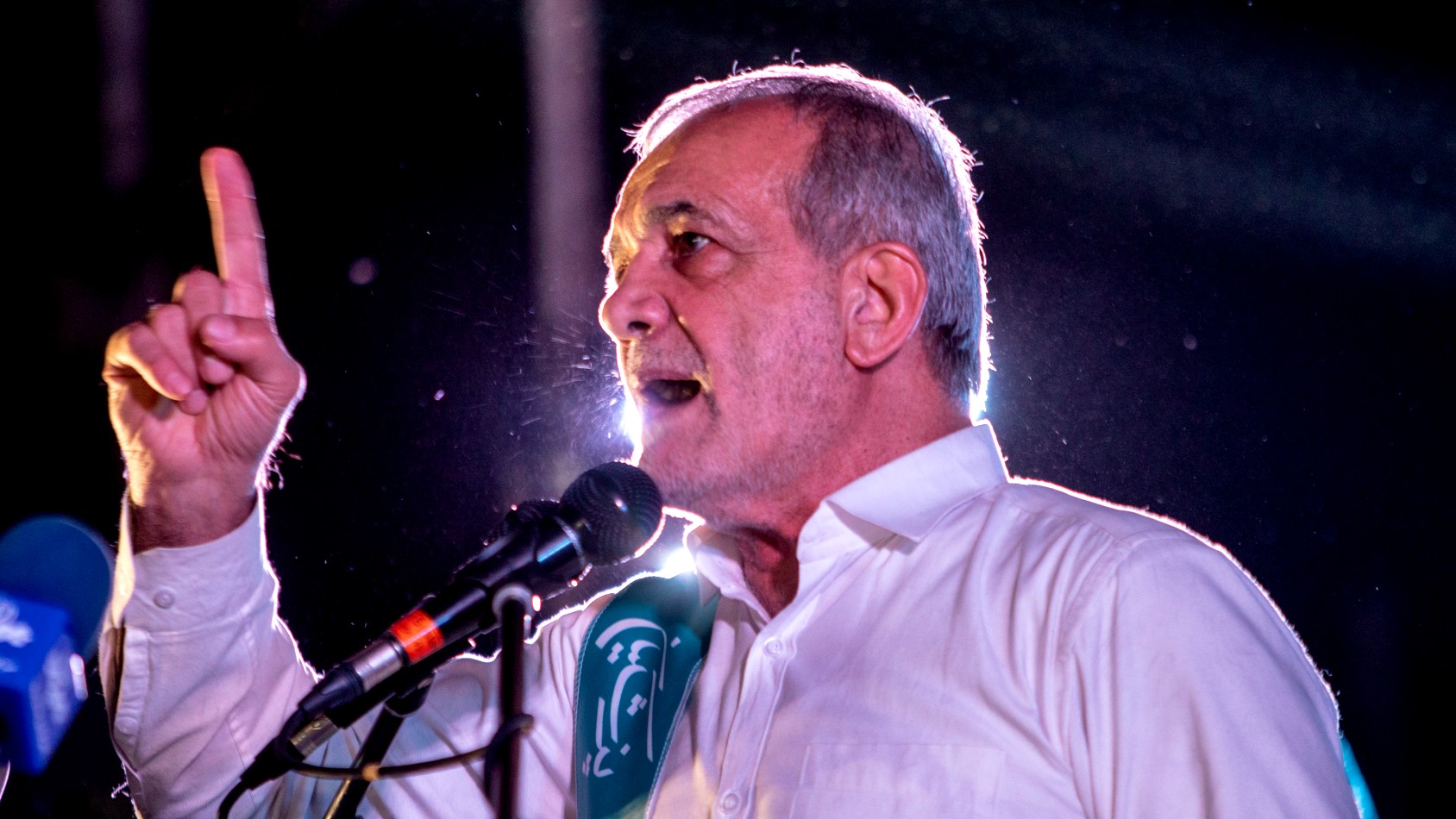Iran: does Masoud Pezeshkian's election mark a turning point?
New president is seen as a progressive but much will depend on how the US reacts

A free daily email with the biggest news stories of the day – and the best features from TheWeek.com
You are now subscribed
Your newsletter sign-up was successful
He says he'll block the "Hijab and Chastity Bill", which would bring in new penalties for women who fail to wear the hijab. He has slated the regime for its brutal crackdown of the "Woman, Life, Freedom" protests in 2022. He wants to relax the internet restrictions that shackle commercial and social life. He talks of reducing tensions with the West and restoring the 2015 nuclear deal with the US.
The victory of the reformist Masoud Pezeshkian in Iran's presidential election – called as a result of the death in a helicopter crash of the hardline president Ebrahim Raisi – has brought to an end "three years of conservative dominance over all branches of government" in Iran, said Sina Toossi in Foreign Policy (Washington). And if Pezeshkian makes good on even a few of his promises, his victory could be transformative.
A female 'kingmaker'
It's far from clear he'll be able to, said Lawdan Bazargan in Iran International. Real power in Iran lies not with the president but with Supreme Leader Ali Khamenei and "the unelected bodies that serve him".
The Week
Escape your echo chamber. Get the facts behind the news, plus analysis from multiple perspectives.

Sign up for The Week's Free Newsletters
From our morning news briefing to a weekly Good News Newsletter, get the best of The Week delivered directly to your inbox.
From our morning news briefing to a weekly Good News Newsletter, get the best of The Week delivered directly to your inbox.
A key one of these is the Guardian Council, a 12-member body of jurists and clerics, which vets all candidates for high office and can disqualify anyone deemed insufficiently loyal to the regime. And the fact that they let a reformist run and didn't disqualify him is down to a woman, said Arash Azizi in The National (Abu Dhabi). Azar Mansouri, who heads the group of reformist parties known as the Iranian Reformist Front (IRF), has proved herself a "kingmaker" in the male-dominated world of Iranian politics. It was she who gave an ultimatum to the Guardian Council, saying that IRF voters would sit out the election if its candidates were disqualified.
The prospect of a low turnout was a real threat, as it would undermine the legitimacy of the vote, so although the council vetoed two of the IRF's three candidates, it gave the green light to Pezeshkian, who duly beat his hardline rival by 16.4 million votes to 13.5 million.
But even with a reformist running, millions of Iranians didn't vote, said Amir Samani in Shargh (Tehran). Who can blame them? The situation in Iran is miserable: inflation is at 40%; inward investment has dried up; corruption is rife. Iranians have no faith in elections. No wonder only 49.8% voted in the run-off on 5 July.
A break from the past
Even so, Pezeshkian does represent a true break from the past, said Ghazal Golshiri in Le Monde (Paris). A softly spoken cardiac surgeon from Iran's Kurdish northwest, and a former health minister, he articulates the concerns of the middle classes, of women, and of the young; his victory was met with dancing in the streets.
A free daily email with the biggest news stories of the day – and the best features from TheWeek.com
But he's no liberal, said Majid Mohammadi in Iran International – not in the Western sense. "Reformists" in Iran are just one faction of the ruling elite; they still subscribe to sharia law. Pezeshkian is no exception. He is not going to challenge the Guardian Council's influence; and his voting record during his five years in parliament rather calls into question his avowed commitment to women's rights.
An early test
Still, he is progressive by Iranian standards, said K.N. Pandita in The EurAsian Times (New Delhi). The "million-dollar question" is whether the elected president can effect change in a country headed by an unelected supreme leader.
An early test will be his choice of cabinet, said The Economist. Ending the virtual "taboo on female and minority representation" would be a sign of progress: in 45 years, the Islamic Republic hasn't had a single Sunni minister and only one who was a woman.
Much will depend on how the US reacts, said Daniel Byman and Katherine Trauger in the Centre for Strategic and International Studies (Washington). Tehran turned to Russia and China after being hit by Donald Trump's crippling sanctions in 2018, and even though Joe Biden has eased some of these, Iran's economy hasn't recovered.
Should Biden win a second term, he might be tempted to go further in return for Iran curtailing its disruptive influence in Middle East politics. But Trump would never countenance such a move. The election that may prove more consequential for Iran is the one being fought in America in November.